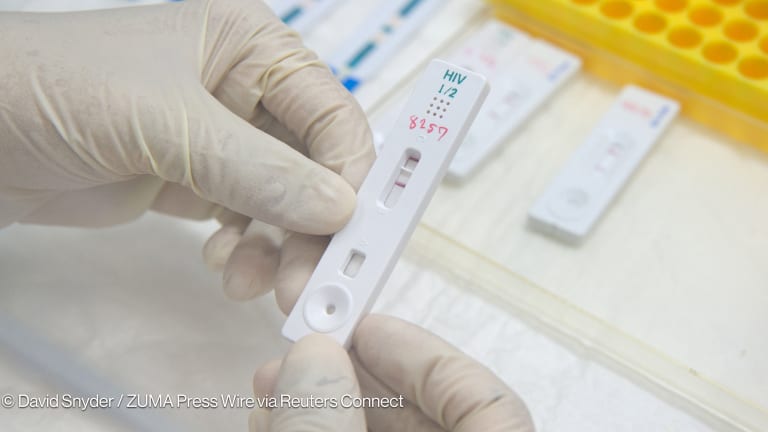
The deadly Ebola outbreak in West Africa has thrust the need for universal health coverage to center stage.
Just two months ago, Save the Children Director of Policy Brendan Cox said the tragedy could be used as a tool to influence policymakers about the agenda. UHC aims to ensure all people can access health services without suffering financial hardship.
Diarmaid McDonald, advocacy manager at Stop AIDS, however argues that for heath care to be truly universal, countries need to tackle discrimination issues that prevent key groups of people from receiving medical attention.
We caught up with McDonald in London. Here are some highlights from our conversation:
What are your concerns about universal health coverage?
Stop AIDS is supportive of the concept of UHC. But we’re really concerned there hasn’t been enough done to highlight that coverage doesn’t equate to access. You can have a clinic in a community, drugs in a pharmacy and nurses on the wards. But if you’re discriminated against because you’re gay, or criminalized because you’re a sex worker or a drug user, there’s a real additional barrier to you accessing that health care.
Where is the discrimination coming from and where can we start to address it?
It’s right the way across the board from general levels of societal prejudice through to national-level discriminatory laws. If we look at countries across the world that have done well on the HIV response, rates are going down. But in a few places that have punitive measures criminalizing drug use or homosexuality, the opposite is true.
For example, Russia has one of the fastest spreading HIV epidemics in the world, driven largely by the government’s refusal to institute measures to treat the country’s drug addicts. The lesbian, bisexual, gay and transgender community is also one of the hardest-hit by HIV because of the country’s anti-gay laws.
Sex workers are also discriminated against around the world. The level of protection they get from the police or doctors if they seek attention and support is variable. In some countries, if they seek care they often are vilified, attacked, raped and beaten up instead of being supported and helped.
What should the global development community be doing to tackle this?
One way to support these groups is by providing stand-alone HIV services. Within mainstream health services, where HIV is treated alongside everything else, health workers can be prejudiced against some groups because they don’t have the training, expertise or understanding.
From the perspective of governments and NGOs, we need to make sure we take greater account of additional barriers that exist in key population groups when trying to achieve UHC. A really important part of this is making sure such marginalized groups are remembered in the post-2015 development agenda framework.
We need to call upon governments, NGOs, the United Nations and others to have the rights of those groups at the heart of any decisions. If we end up with a framework that leaves thousands of people too frightened to access health care, then there may as well not be UHC at all.
Want to learn more? Check out the Healthy Means campaign site and tweet us using #HealthyMeans.
Healthy Means is an online conversation hosted by Devex in partnership with Concern Worldwide, Gavi, GlaxoSmithKline, International Federation of Pharmaceutical Manufacturers & Associations, International Federation of Red Cross and Red Crescent Societies, Johnson & Johnson and the United Nations Population Fund to showcase new ideas and ways we can work together to expand health care and live better lives.








